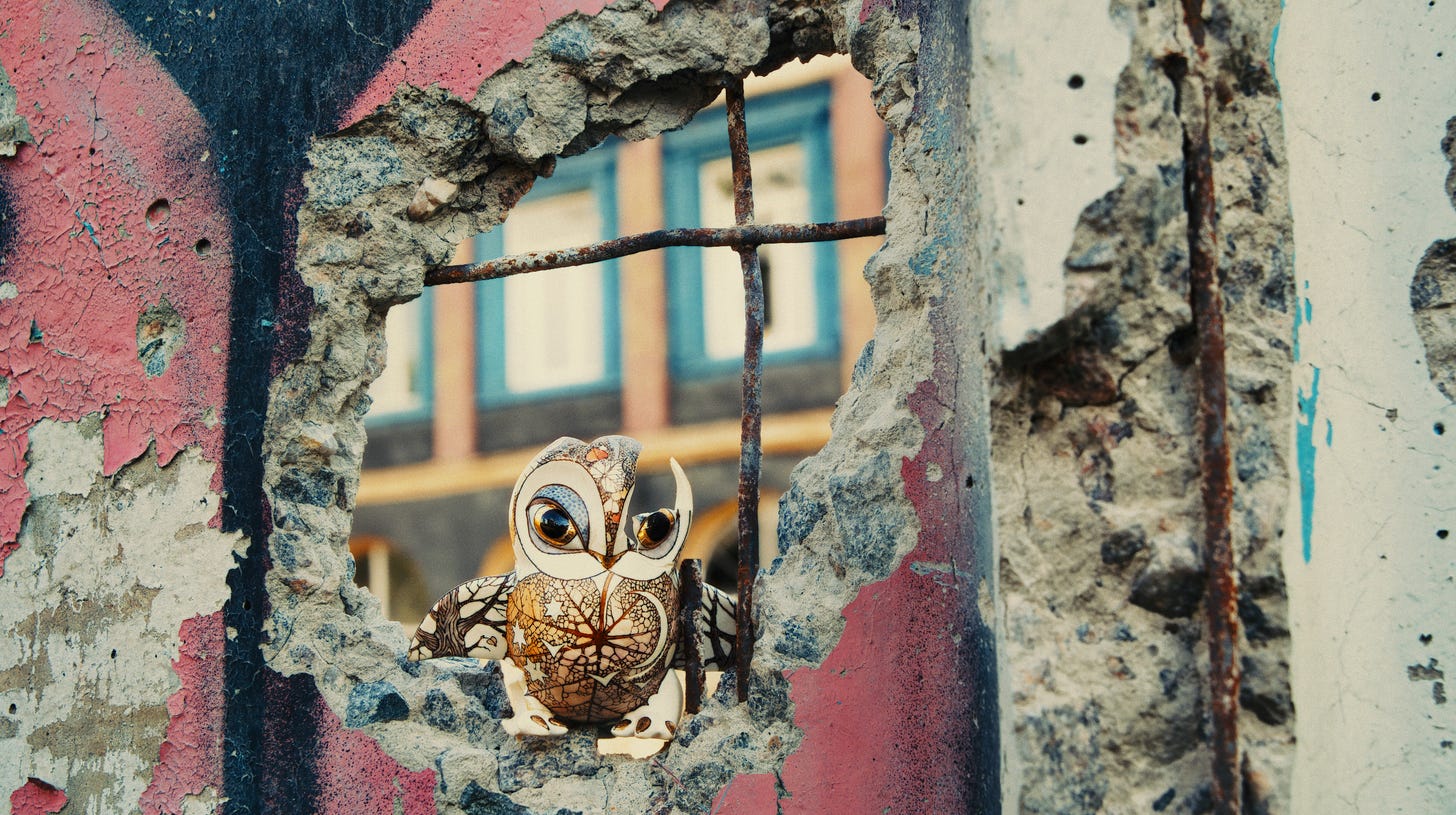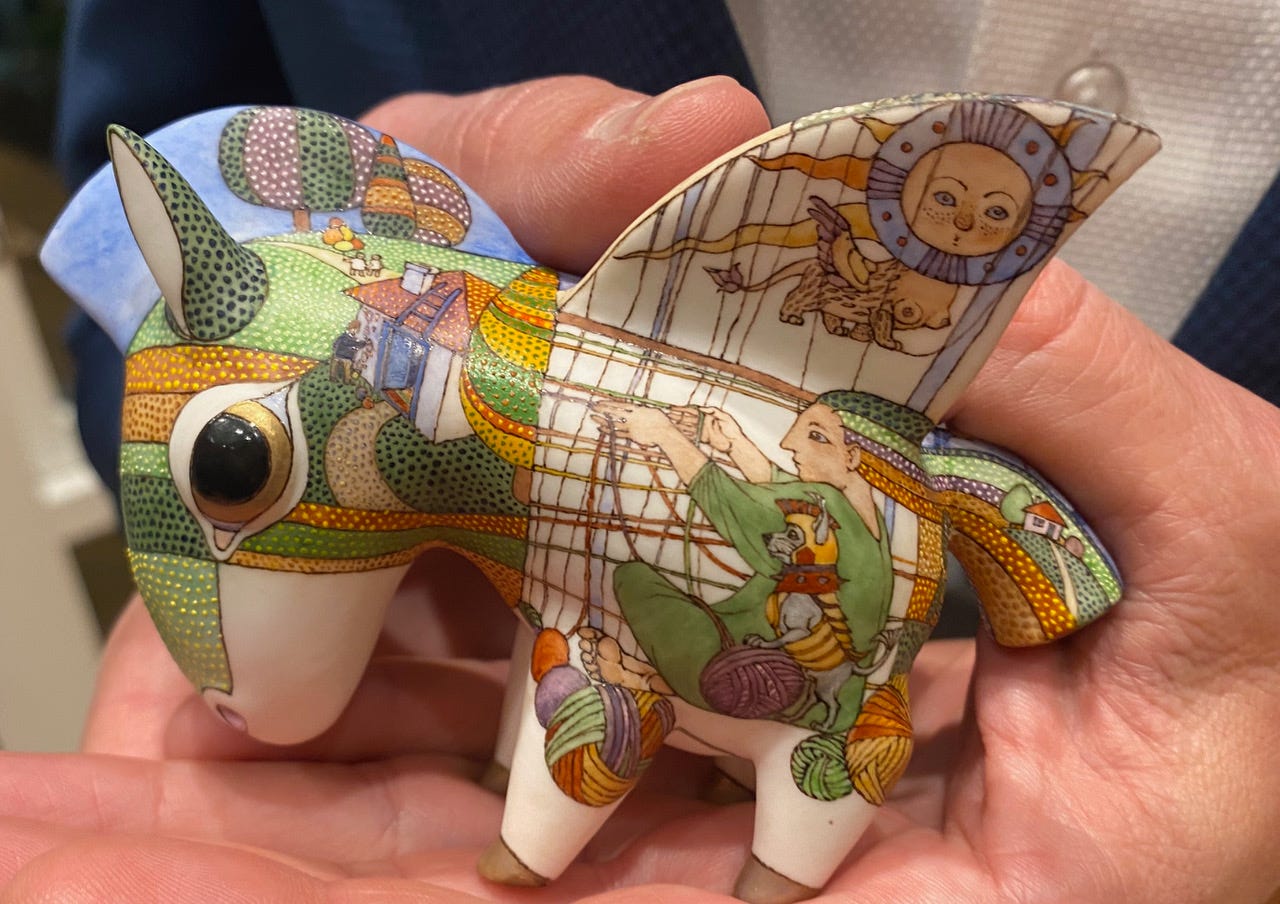Easy to Break, Yet Impossible to Destroy, by Steven Boyd Saum (Ukraine 1994-96)

It began like this: Early the morning of February 24, Ukraine — a free and independent nation — became the victim of an unprovoked war of aggression launched by Vladimir Putin, who ordered tens of thousands of Russian troops to invade. Missiles and shells rained down on cities across the country. Apartment buildings and hospitals were hit. Civilians were terrorized and killed, while many thousands huddled in bomb shelters and metro stations. Meanwhile, brave citizens began lining up to give blood, knowing that it would be needed in days to come.
The worst conflict in Europe since World War II was unleashed on the people of Ukraine by an invading army. That was three years ago today. And yet with courage and resilience, they thwarted Russian plans to seize Kyiv in a matter of days.
What I joined others in writing at the outset of this war holds even more true today: We in the Peace Corps community unequivocally condemn these acts of brutal violence and call for the invasion to cease immediately. This is a war Ukrainians did not start and do not want.
The truth is, Russia did not begin attacking Ukraine in 2022. It was in 2014, with the success of the Revolution of Dignity and Ukraine — and the example that a democratic uprising next door posed to people living under an authoritarian regime in Moscow — that Putin seized Crimea and sent Russian troops into the Donbas. In the years that followed, thousands of Ukrainians were killed. Ceasefire agreements were violated by Russia again and again. And Putin’s imperialist ambitions to carve off a breakaway region — as Russia had done in Moldova in the 1990s, in Georgia in the 2000s — metastasized into a megalomaniacal scheme to destroy Ukraine as a nation, to erase its culture and history.
The horrors of Russian occupation were laid bare in communities like Bucha, Borodianka, and Izyum. And in the east, Russian attacks continue to obliterate towns and cities beyond recognition, leaving them in ruins that soldiers have described as worse than Stalingrad.
And yet, sickeningly, in 2025, because of the turning of political gears in the United States, Kremlin talking points have become amplified by those at the highest echelons of power in Washington. The warped mirror into which we have stepped is disorienting, to say the least. Here it’s important to remember that, in the past three years, millions around the world learned the music and the words to a song of resistance — the national anthem of Ukraine: “Ще не вмерла України” — Ukraine has not perished yet.
“Easy to break, yet impossible to destroy”
Leontyev co-directed the film with U.S. director Brendan Bellomo, with extraordinary footage from first-time cinematographer Andrey Stefanov, a painter and longtime friend. Leontyev himself is a first-time director born into a family of biologists. He has spent his life studying painting, photography, graphic design, and art theory. Alongside his wife and longtime collaborator Anya Stasenko, Leontyev now creates the porcelain sculptures featured in Porcelain War. He is also a former soldier of the Ukrainian Special Forces and a highly regarded weapons instructor for civilians who are currently defending their country against Russian aggression.
Leontyev shapes the porcelain figures, and Stasenko paints them with intricate images that weave stories across the objects. The works are stunning in complexity, moving in the tales they tell about people and place. That is one reason why audiences are so astounded by Porcelain War: It is a film striking in its beauty — also capturing the Ukrainian landscape in colors and textures — amid the horrors of war. But this is not a film that ignores those horrors. In Kharkiv, that would be impossible: The city is not even twenty miles from the Russian border. While the brutal destruction wrought by Russian missiles and bombs is everywhere in Kharkiv, the city is not broken. Nor is Ukraine.
“Ukraine is like porcelain,” Leontyev says in the film, “easy to break, yet impossible to destroy.”
Yet every day, the attempts to destroy Ukraine’s will and identity continue. The weekend just past, Russia unleashed the largest drone attack of the entire war.
Leontyev wanted to make sure U.S. audiences understand what’s at stake very clearly: “The goal of the aggressor is to erase our culture, is to take away our identity,” he said. Museums have been destroyed and looted, universities damaged, teachers targeted. Leontyev himself trained with a unit nicknamed Saigon; as the film reveals, they’re civilians who went from working as dairy farmers and furniture salespeople to defending their country, including fighting on the front lines in Bakhmut.
In Porcelain War, the one non-human subject introduced at the beginning is Frodo, Leontyev and Stasenko’s little dog. Frodo’s mien in the face of the invaders calls to mind a paraphrase of Shakespeare: Though he be but little, he is fierce. As Leontyev explained, when Frodo hears helicopters or planes, he doesn’t hide—he barks and tries to chase them away.
Frodo also came onstage in San Francisco. I offered Leontyev what might seem a whimsical observation, but one fraught with symbolism: Frodo, of course, is a hero of The Lord of the Rings. The wanton cruelty of the Russian invaders earned them the derogatory sobriquet orcs.
Yes, Leontyev said, and not only that, but right now the army of Ukraine defends a suburb near Kharkiv named Rohan — a name also out of Tolkien. And Frodo the dog is patient and brave — traits we need for good to triumph over evil.
As we wrapped up our conversation in San Francisco, I asked Leontyev about what he hopes people will take away from this film. It’s a message that might well resonate more deeply with each passing week on these shores, and everywhere that there is a deepened responsibility to show courage. “Our responsibility as artists and filmmakers is to bring hope and inspiration,” Leontyev said. “And for me, the main message of our movie is: Resistance is possible. In any situation, resistance is possible for everyday people. Everyday people may be great in their resistance. It’s important — it’s not about Ukraine and Ukraine only, it’s about all of us — about everyone who is ready to stand for democracy and ready to preserve humanity in any dark time.”

About the author
Steven Boyd Saum is a writer and editor and the former editor of WorldView magazine. He served with the Peace Corps in Ukraine 1994–96, directed the Fulbright program in Kyiv, and has served as an election observer with the OSCE. His work has appeared in Orion, The Believer, Salon, and in newspapers in the U.S. and internationally. He is a founding member of the Peace Corps Worldwide advisory board.
POLITICAL SCIENCE EXPERIENCE TESTAMENT
Scenic train riding through new mendacity
Sophists taught you might prove lies equal
Selling yourselves for drinks of equal echo
Political parties tumble into their opposites
Hustle entertainment news picture context
New generations lose old historical threads